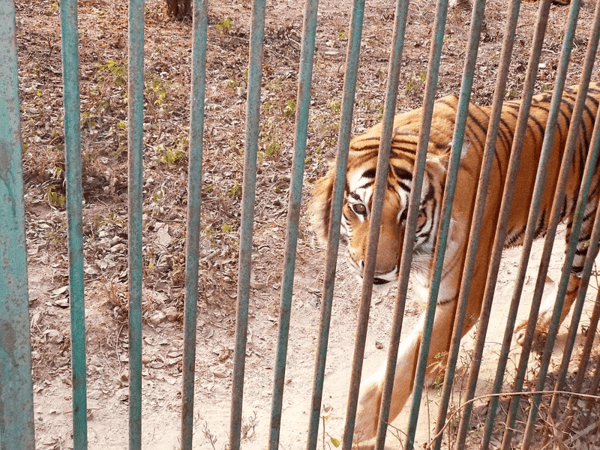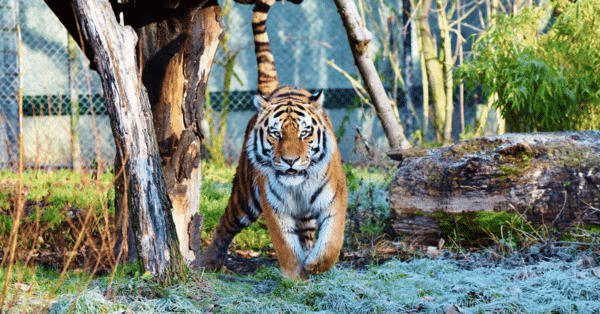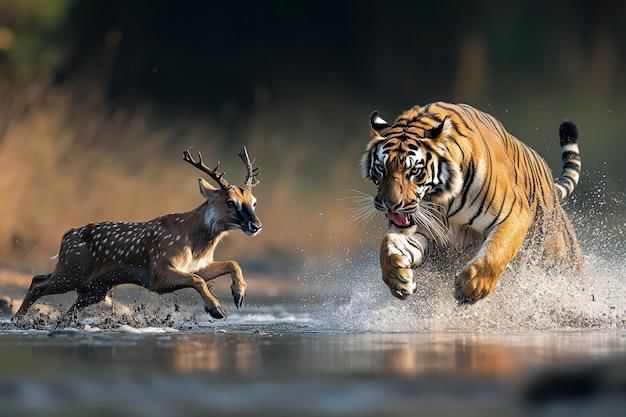|
The poet feels pity for the tiger, recognizing its rage and helplessness as it moves slowly in its confined space.
|
Card: 2 / 16 |
|
The poem contrasts the tiger's natural habitat, where it is wild and free, with its existence in a zoo, where it is confined and experiences rage and helplessness.
|
Card: 4 / 16 |
|
The tiger would naturally prefer to be in the wild, where he can ___ and ___ for his food. |
Card: 5 / 16 |
|
The 'brilliant eyes' symbolize the tiger's inner strength and vitality, contrasting with its sadness and confinement. |
Card: 8 / 16 |
 Unlock all Flashcards with EduRev Infinity Plan Starting from @ ₹99 only
|
|
Fill in the blank: The tiger stares at the ___ in the night as a way to divert its thoughts. |
Card: 9 / 16 |
|
True or False: The poem suggests that it is acceptable to keep animals in cages for the sake of public entertainment. |
Card: 11 / 16 |
|
False. The poem argues that it is cruel to confine animals, as they have a right to live freely. |
Card: 12 / 16 |
|
What does the contrasting phrase 'quiet rage' in the poem signify about the tiger's emotions? |
Card: 13 / 16 |
|
The phrase 'quiet rage' signifies the tiger's suppressed anger and frustration at being caged, indicating that despite its calm exterior, it harbors deep feelings of anger and helplessness. |
Card: 14 / 16 |
|
The words 'cage' and 'sky' in the poem symbolize what aspects of the tiger's existence? |
Card: 15 / 16 |
|
'Cage' symbolizes the captivity and confinement imposed by humans, while 'sky' represents the freedom and natural habitat that the tiger longs for. |
Card: 16 / 16 |























